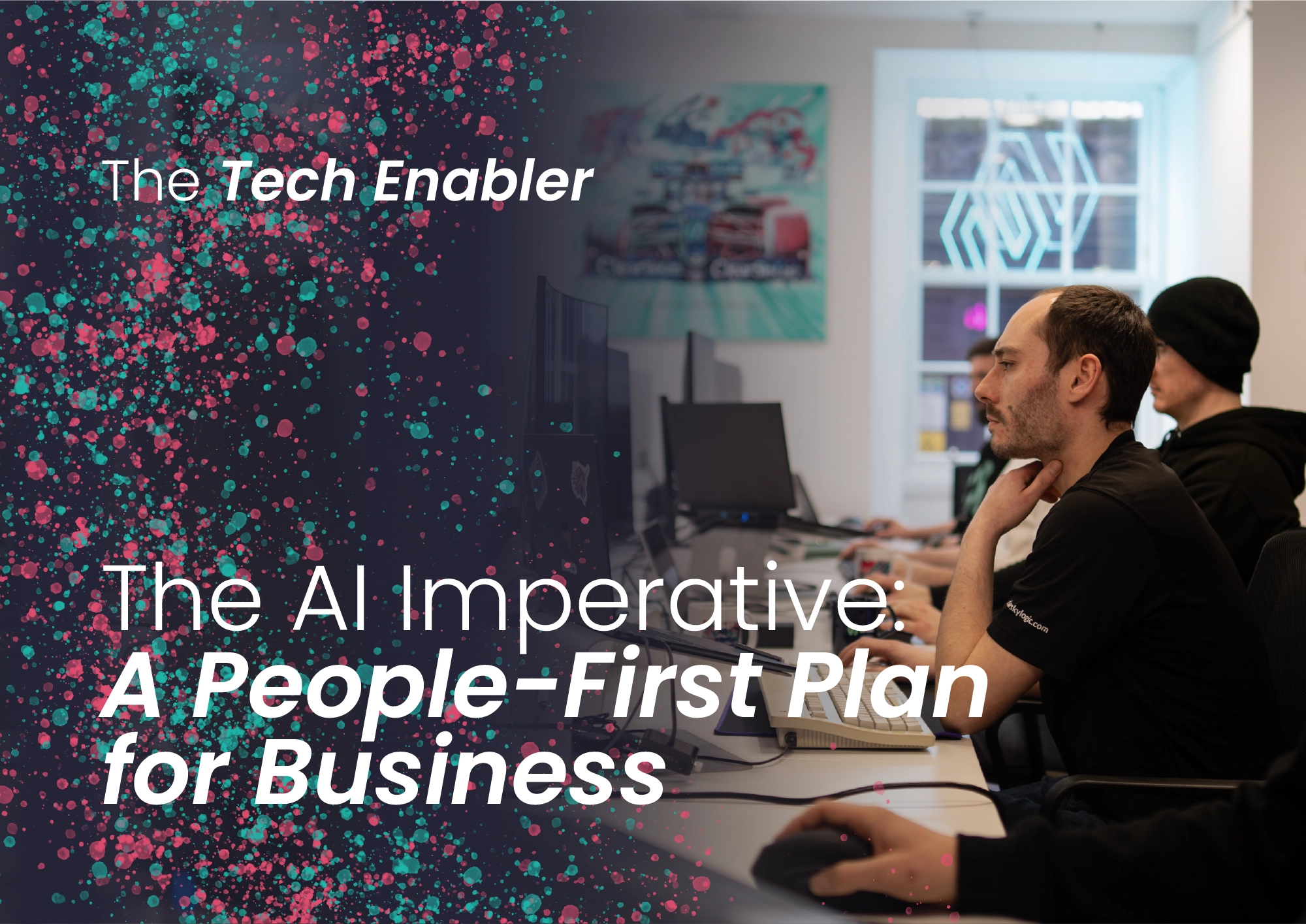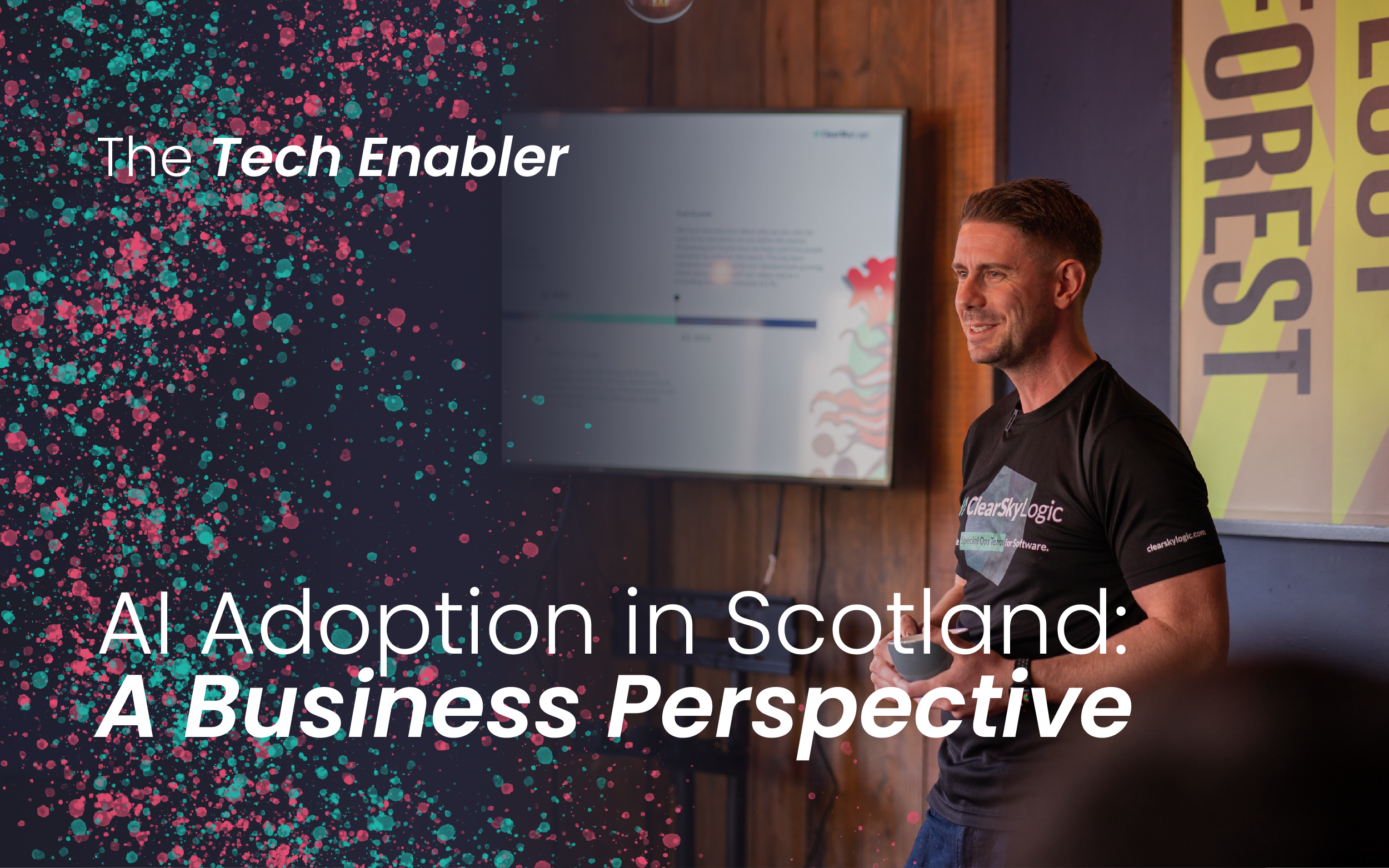One thing I’m often asked is “What makes ClearSky Logic different?” And when meeting potential clients I'm usually asked quite early on in the conversation something along these lines…
“Why wouldn’t I just hire software developers or bring in IT contractors for a specific project?”
For me it’s the very problem I’d faced in my earlier career- leading software development teams within a multi-million pound turnover company and it’s one of the main reasons we started ClearSky Logic. I had responsibility for large budgets and an endless list of projects to be delivered. However , with our existing teams already committed to projects, the ability for me to scale software development teams quickly and effectively became a challenge.
At the time we had grown the team over a couple of years, from only two developers and a tester, to multiple teams taking on multiple projects and having a great time learning what works and what doesn’t in product development.
I’d learned a few key things along the way when trying different approaches to scaling the teams. One of the first was that it can take a while to hire the right developer for the team, and I noticed I’d rushed it at points and the results weren’t what I’d hoped for.
I estimate, even working with one of the best recruitment agencies in Edinburgh, it was still taking around 3 weeks to get candidates through the hiring process, plus a 4 week notice period for the candidate and once through the door another 2-4 weeks for them to become a valued resource for the team.
"That’s almost 11 weeks to get a new developer hired into the team and delivering on a project."
For most businesses it's not a great prospect having to wait so long to get extra resources in a team. By the time you manage to get the candidate in the team, the business has already fallen behind and potentially lost faith in their software teams. Now imagine the situation faced when you have given the budget, the critical project and have no available resources to fulfil the project.
This is usually where the software teams get flack for being a blocker, being the person to say we can take on that project but the other project you are looking to deliver will have a delayed deadline. These messages going back to the client can quickly result in the budgets being re-evaluated.
Options to Scale Software Development Teams
At this point I’d consider the following options, each with there own opportunities and risks :
- Hire Developers Faster
- Hire Contractors
- Outsource to a third party
Hire More Developers Faster
I could perform multiple hires in parallel, and on the surface, this appeared to be the best value option. However, the risks are massive and the overheads too high. If you get the wrong people into a team too fast, the impact on your culture could be disastrous- the last thing I want to do is lose existing brilliant developers in our teams.
The impact of bringing in multiple new developers concurrently would be huge, leading to the teams decreasing output where we could not afford to slow down the existing teams’ project delivery.
Hire IT Contractors
If you have ever worked with IT Contractors then you know they can be great- really experienced tech experts brought in to supplement your team. They aren’t cheap and neither should they be with the experience they bring which can be very valuable to your project.
This option isn’t without its problems and risks, it’s very difficult to measure the value an individual brings to a team, usually I prefer to measure output based on the team as a whole with each individual bringing a different skill set and traits to the team.
When you have an expensive resource it is important to be able to demonstrate value both clearly and often. I was occasionally faced with the prospect of the IT Contractor not providing enough demonstrable value to justify the investment.
The problem was compounded by having multiple IT Contractors and running teams at pace. The best option I could find at the time, was to roll out smaller teams mixed with permanent staff and temporary IT Contractors, where the mixture of business knowledge and technical expertise could provide value.
Outsource To A Third Party
This is where I’m meant to say outsourcing is a great option and it really can be; however it can quickly become a nightmare,
"I’ve lived through when it goes wrong"
and I have shared various tips to get it right…
Impact on existing teams
The most important aspects to consider when outsourcing is the impact on the existing teams- the separation of the internal vs external team can be difficult to manage correctly. Everyone needs to be brought on-board to the idea of outsourcing early in the process and feel empowered about the decision.
It’s not about taking people's jobs or because the internal team isn’t delivering. It’s about the business getting the increased levels of output during the peaks in demand for them quickly. With an “Us and Them” approach it's never going to go well.
Communication & Trust
Is this external company providing output at the right quality? Is it being produced quickly enough? Am I supporting them in the right way by providing constructive feedback?
To emphasise this- it is fundamentally about getting the communication right back and forth. For some companies, the third party might not be the right fit. Do you know the third party developers working on your project? Are they any good? Can they speak reasonable English so our developers can communicate effectively?
Why Are ClearSky Logic Different?
In ClearSky Logic we have designed a service to help companies scale up their software development capabilities to address many of the issues I ran into when I was in the difficult position of scaling up. We call it The Special Ops for Software, and our unique way of working is what sets us apart.
Pace
We appreciate the need for speed when you are tackling so typically, we can be kicking off a project in under 2 weeks, but sometimes even faster. Comparing this to 11 weeks with hiring permanents into your team it can really make the difference getting ahead for businesses.We appreciate the need for speed when you are tackling complex situations
Overheads
When you hire permanent or even contractors, the overheads are large- you need to give them a desk and IT equipment but it's difficult to measure cost which is often not taken into consideration. The overhead on existing staff and managers, adding to their scrum teams, taking longer to get around coaching and mentoring the team. Then there is what the new members of the team spend their time on, whether it be HR type meetings or company meetings.
With ClearSky none of these overheads come into play- the resources paid for are used solely on the client’s projects, not on HR meetings or personal development, you don’t need to provide office space or equipment. The full project budget provided is used specifically to deliver the project and not all the other things which can get in the way.
Collaborative relationship
When our new clients get to the stage of working with us, they often expect us to have a set answer, along the lines of
"This is exactly how we work"
The reality is very different. We work the best way we can for each client, and so far 7 years in, just about every client has been different in their ways of working. For some that means an extension to their existing team, for others we are working in parallel, or for some we might be their only software development team.
We can communicate and integrate with their existing setup as much is required or as little depending on what the client needs.
We do often have our preferences, especially when our clients have an existing team, we find it best to be in person where possible to share whiteboard moments and paired learnings.
We Care
I could list all day the reasons why you should work with us, yet it could be put very simply as- we care. Whenever things aren't going as planned, our clients are in a tight spot, the clients have promised their customers a new feature for a specific date- we do absolutely everything we can to help. Whether that be throwing more resources at projects, bringing in specialists to help our clients out whenever we can or doing very late night software development sessions.
I like to think back to my days as being in the position where I had to resource multiple projects for a company I was working for at the time and I'd love to think ClearSky Logic would have been the perfect answer to the business needing to scale up capabilities.
Imagine if lack of software development resources wasn't holding back your business, how much faster would the business be achieving its goals and how much better a service would your customers be receiving?


.svg)





